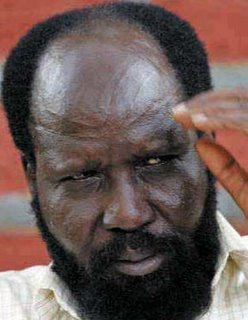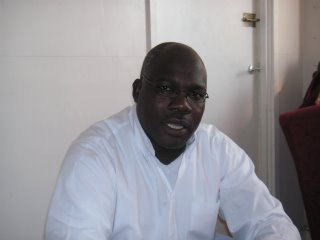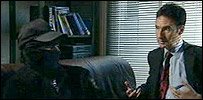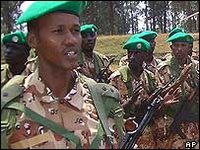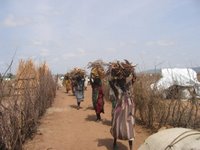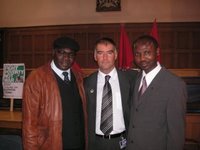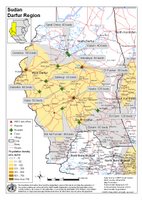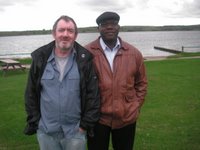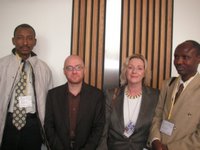
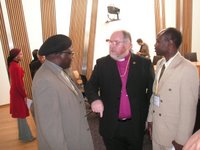
Sudan Liberation Movement inside the Scotland Parliament
In a sustained effort and planned struggle to explain the just cause of Darfur and project facts before decision-makers, SLM chapter senior officials in Scotland; Mr. Alhadi Abdullah Abudafair, chairman and Mr. Al-Rabae Adam Ezaldeen, Secretary-General and Mr. Nur Eldin Abdullah khalil, SLM chapter spokesman conferred with a group of parliament deputies and decision-makers whom they briefed on the deteriorating humanitarian situation in Darfur, absence of security and the regime of Khartoum non-compliance with the UNSC Resolution 1706 to protect the innocent civilians. They have touched on the regime defiant conduct indicates the continuation of its ethnic cleansing policy which will worsen the situation especially following the expulsion of Mr. Pronk, UN special representative to Sudan.
The SLM officials urged the deputies and decision-makers to exercise further pressure on the international community to put into effect the UNSCR 1706 and accelerate the deployment of international forces to protect the people of Darfur and live up to its obligations toward the people of Darfur.
Information Committee
Tel: 008821666677532
Sudan Liberation Movement in Scotland in a political symposium
Mr. Alhadi Abdullah Abudafair, chairman of SLM chapter in Scotland in a political symposium organized at Quality hotel in Glasgow city addressed a large audience of citizens, representatives of political parties and students’ unions. The event took place with the presence of Mr. Al-Rabae Adam Ezaldeen, SLM chapter Secretary-General and Mr., President of the Union of the People of Darfur in Scotland. It’s worth mentioning that the symposium was organized by the Scotland Social Party (Solidarity) and SLM chapter participated in response to official invitation extended to it by the organizers in solidarity with the people of Darfur.
We have strongly reiterated that we are resolved to stay the course to fully restore the rights of our people and establish justice, democracy and freedoms. Moreover, we will avail any political, cultural and social platform to cast lights on the just cause of the people of Darfur who have suffered a lot from war, displacement and genocide carried out by the national conference regime and its militias.
The Glasgow university students’ union has extended its invitation to the SLM chapter’s executive staff to reflect the crisis in Darfur, the SLM vision as well as its instruments to resolve the problem in Darfur. We will make that information available soon.
Long live and victory to our revolution.
Information Committee
Tel: 008821666677532
Sudan Liberation Movement in a huge protest
In a remarkable day filled with vivid activities, SLM chapter chairman, secretary-general and spokesman in Scotland participated, in response to official invitation from the organizing entities, in a huge protest organized by Glasgow Campaign To Welcome Refugees. They availed that opportunity to speak to various media and press organizations on the plight of Darfur.
